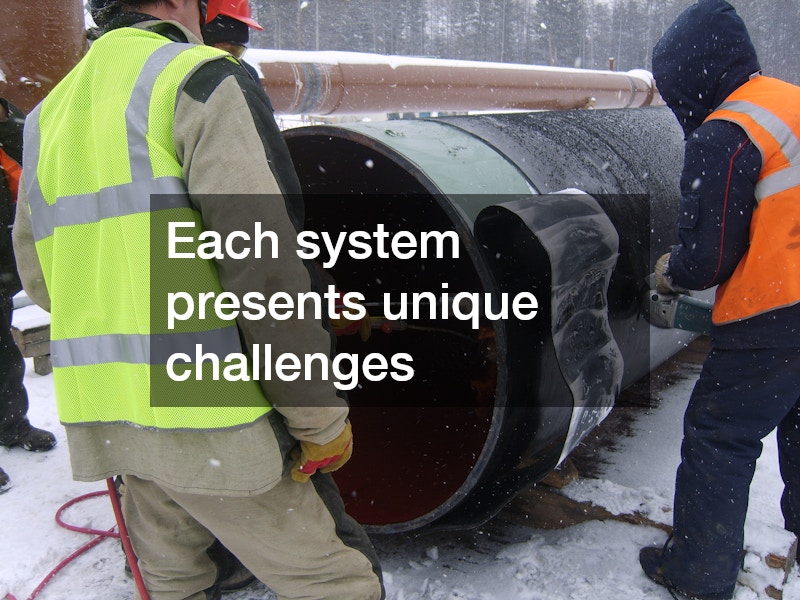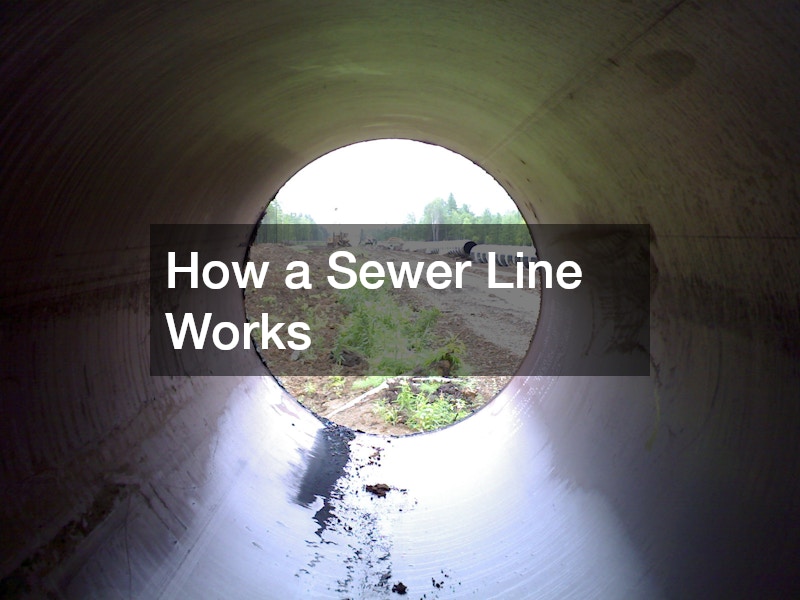
How a Sewer Line Works
Introduction
This article explores the intricacies of how sewer lines function, specifically focusing on the unique systems present in Pueblo, CO. Understanding sewer lines is crucial for homeowners, engineers, and anyone interested in public health and sanitation. By delving into their mechanisms, we gain insight into how these systems serve communities in maintaining hygiene and water management.
What is the Function of a Sewer Line in Pueblo, CO?
Understanding Sewer Line Basics
Sewer lines in Pueblo, CO, are composed of a complex network of pipes that transport sewage from homes and businesses to treatment facilities. Manholes are strategically placed along the sewer lines to provide access for maintenance and to prevent blockages, enabling the system to function smoothly. Treatment facilities play a crucial role by sanitizing wastewater, ensuring that any environmental impacts are minimized.
These components work collectively to maintain an efficient flow of wastewater, protecting public health by preventing contamination. The layout and size of the pipes are designed to accommodate varying population densities within Pueblo, CO, while ensuring adequate service. Regular inspections are essential in maintaining optimal performance and catching minor issues before they escalate.
In Pueblo, CO, the sewer line system is critical in supporting not just sanitation, but also the overall living conditions by providing necessary infrastructure. Pump stations may also be utilized to handle elevation changes where gravity flow is not feasible. Ultimately, understanding the basics of sewer lines helps homeowners appreciate the engineering marvels beneath their feet.
Gravity vs Pump Systems
The distinction between gravity-based systems and pump systems lies in how they transport sewage. Gravity systems rely on natural downhill flow, utilizing the earth’s gradient, which reduces energy costs for the city and homeowners. Pump systems, on the other hand, are used when topography prevents gravity-fed flow, necessitating the use of electric pumps to move wastewater.
In Pueblo, CO, the topography often dictates which system is more advantageous. For hilly or uneven regions, pumped systems are essential, while flatter areas benefit from gravity-based designs due to their simplicity and cost-effectiveness. The decision between these systems impacts both the initial setup and long-term maintenance requirements.
Each system presents unique challenges, such as the need for regular maintenance to keep pumps operational in pump systems. Understanding these dynamics aids engineers and city planners in making informed decisions that balance efficiency with economic feasibility. The choice between gravity and pump systems in sewer lines is a cornerstone in designing efficient infrastructure in Pueblo, CO.
Maintenance and Management
Maintenance of sewer lines in Pueblo, CO, is a collaborative effort between local authorities and the community. Regular inspections are critical in early detection of potential problems and ensuring the longevity of the system’s components. Blockages, root intrusions, and other common issues are lessened with a proactive maintenance approach.
The City of Pueblo employs a team of skilled technicians who utilize advanced equipment to keep the sewer lines operational. Residents are encouraged to report any abnormalities, such as slow drainage or foul odors, which can be indicative of underlying issues. Ensuring effective communication between homeowners and local authorities is key to addressing problems before they cause widespread disruptions.
One innovative technique used in Pueblo, CO, is the application of CCTV inspections which allow for precise identification of trouble spots without excavation. This technology minimizes the need for disruptive dig-and-replace methods and prioritizes minimally invasive repairs. Such advancements play a significant role in enhancing the management and reliability of sewer lines in the region.
How Are Sewer Line Issues Identified and Resolved in Pueblo, CO?
Common Sewer Line Problems
Sewer lines in Pueblo, CO, encounter typical issues such as blockages, which can lead to backups and potential health risks. Leaks and breaks might arise from aging infrastructure or extreme weather, posing threats to efficiency and safety. Root intrusions represent a persistent menace, as tree roots seek moisture and infiltrate cracks in pipes.
Addressing these concerns promptly is vital for maintaining public health and preventing environmental contamination. Local authorities employ strategic planning and modern technologies to manage these issues effectively. Community involvement is crucial as residents can aid by being mindful of what is flushed and by maintaining clear landscapes around sewer lines.
Public awareness campaigns in Pueblo, CO, inform citizens about the impact of sewer line damage and preventive measures. This communal understanding facilitates better sewer line management and minimizes the occurrence of significant issues. Ultimately, keeping the sewer line infrastructure in prime condition requires collective responsibility from both the city and its residents.
Repair and Replacement Solutions
Resolving sewer line issues efficiently requires a range of repair and replacement strategies suited to varying conditions in Pueblo, CO. Trenchless technology, including pipe bursting and relining, provides minimally invasive options that address pipe issues without extensive excavation. These methods not only save time and money but also protect landscapes and property structures.
Traditional dig-and-replace techniques remain relevant, especially when dealing with extensive damage or when alignment adjustments are necessary. While more intrusive, these methods ensure comprehensive solutions for long-term reliability. Decisions between these strategies involve considerations of cost, time, and the specific conditions under which the sewer lines operate.
In Pueblo, CO, finding the right balance entails meticulous evaluation by engineers and city planners to determine the most effective course of action. Applying the right repair strategy at the appropriate time minimizes service disruptions and preserves the integrity of the city’s sewer line network. The multifaceted approach ensures that the infrastructure remains robust in the face of evolving demands and environmental conditions.
Conclusion
In conclusion, sewer lines are crucial for managing waste and maintaining sanitary conditions in any community. The specific measures and techniques employed in Pueblo, CO, offer insight into the complexities involved in sewer line operations. Understanding these systems is key to preserving public health and ensuring efficient waste management for future generations.
.




